"O Blessed St. Thomas Aquinas, faithful servant of God, intercede for us that we may grow in wisdom, understanding, and holiness. Help us to seek truth and guide us in our pursuit of knowledge, so that we may serve God and others more faithfully. Through your prayers, may we live in humility and love. Amen."
ST. THOMAS AQUINAS
ST. THOMAS AQUINAS
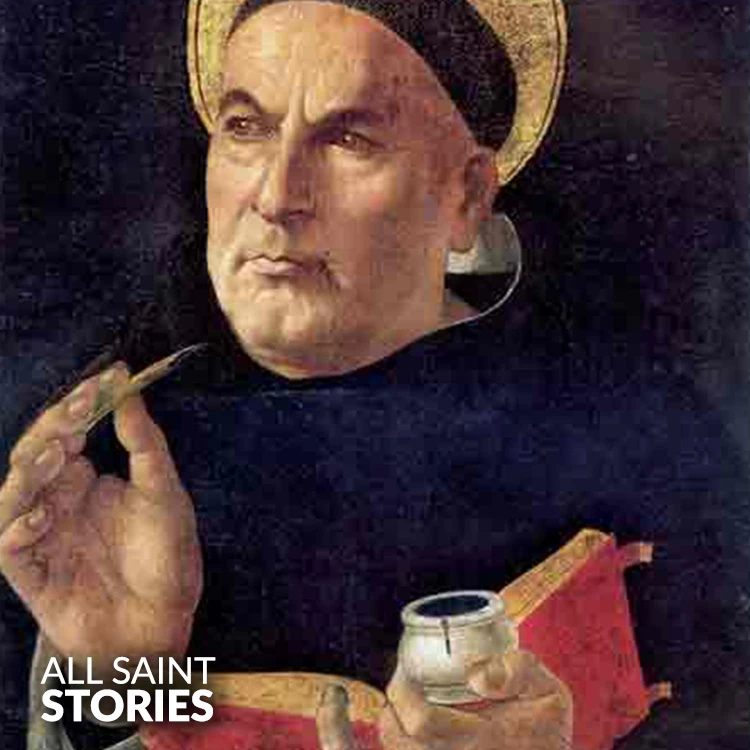
St. Thomas Aquinas was a 13th-century Dominican friar, philosopher, and theologian whose teachings shaped Catholic doctrine. A Doctor of the Church, he is best known for his work Summa Theologica, blending faith and reason.
St. Thomas Aquinas, born on January 28, 1225, in Roccasecca, Italy, was one of the most influential theologians and philosophers in Christian history. He was born into a noble family and destined for a life in the Church. From a young age, Thomas demonstrated an insatiable curiosity for knowledge and a deep commitment to the faith.
He joined the Dominican Order against his family's wishes, leading to dramatic efforts by his relatives to prevent him, including imprisoning him for over a year. Despite the obstacles, Thomas remained devoted to his calling and eventually pursued studies under St. Albert the Great in Paris and Cologne.
Thomas was a prolific writer and a brilliant scholar. His masterpiece, the Summa Theologica, became a cornerstone of Catholic theology and philosophy. In it, he systematically addressed virtually every major theological question of his time, using reason, Scripture, and Church tradition. His work blended the philosophy of Aristotle with Christian theology, forming a framework that the Catholic Church still upholds.
Thomas was known for his humility, silence, and deep prayer life. Despite his intellectual brilliance, he had a childlike devotion to the Eucharist and was known to experience mystical visions, especially during Mass. On one occasion, after a profound mystical experience, he ceased writing and declared that all he had written was “like straw” compared to the reality of God.
He died on March 7, 1274, at the Cistercian Abbey of Fossanova, while on his way to the Second Council of Lyon. Thomas was canonized by Pope John XXII in 1323 and declared a Doctor of the Church in 1567 by Pope Pius V.
Video Not Found
The information on this website is compiled from various trusted sources. While we aim for accuracy, some details may be incomplete or contain discrepancies.
If you notice any errors or have additional information about this saint, please use the form on the left to share your suggestions. Your input helps us improve and maintain reliable content for everyone.
All submissions are reviewed carefully, and your personal details will remain confidential. Thank you for contributing to the accuracy and value of this resource.
Credits & Acknowledgments
- Anudina Visudhar (Malayalam) – Life of Saints for Everyday
by Msgr. Thomas Moothedan, M.A., D.D. - Saint Companions for Each Day
by A. J. M. Mausolfe & J. K. Mausolfe - US Catholic (Faith in Real Life) – Informational articles
- Wikipedia – General reference content and images
- Anastpaul.com – Saint images and reflections
- Pravachaka Sabdam (Malayalam) – Saint-related content and insights
We sincerely thank these authors and platforms for their valuable contributions. If we have unintentionally missed any attribution, please notify us, and we will make the correction promptly.
If you have any suggestion about ST. THOMAS AQUINAS
Your suggestion will help improve the information about this saint. Your details will not be disclosed anywhere.
© 2026 Copyright @ www.allsaintstories.com

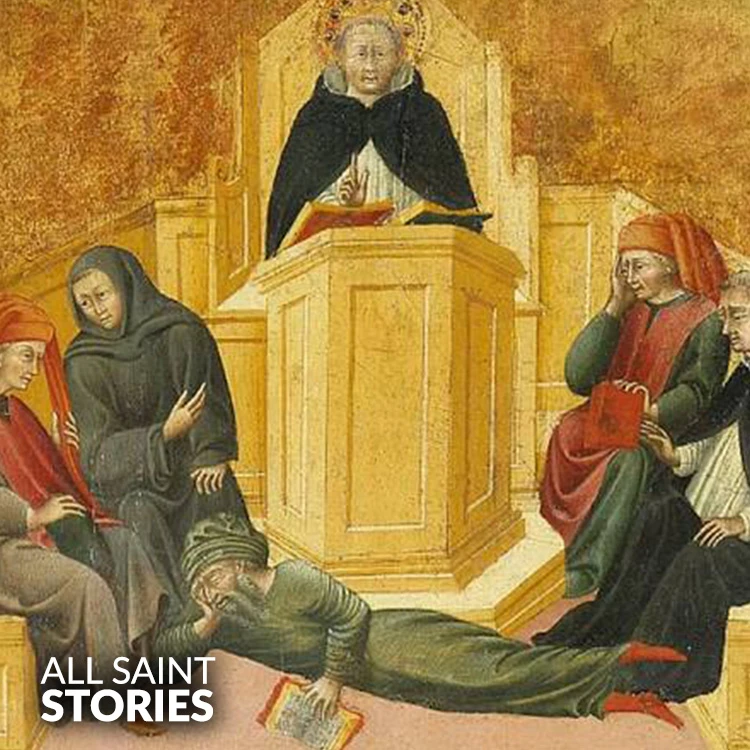
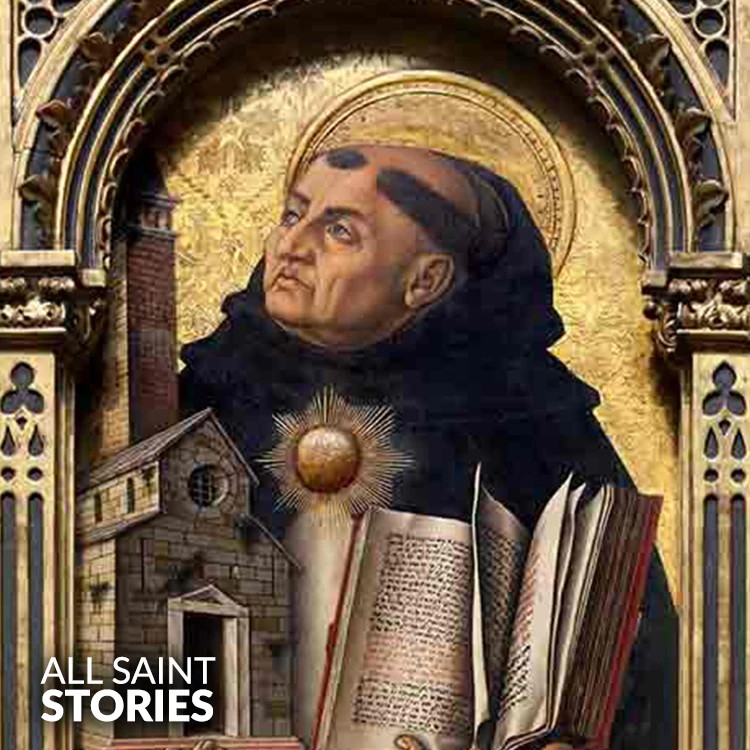
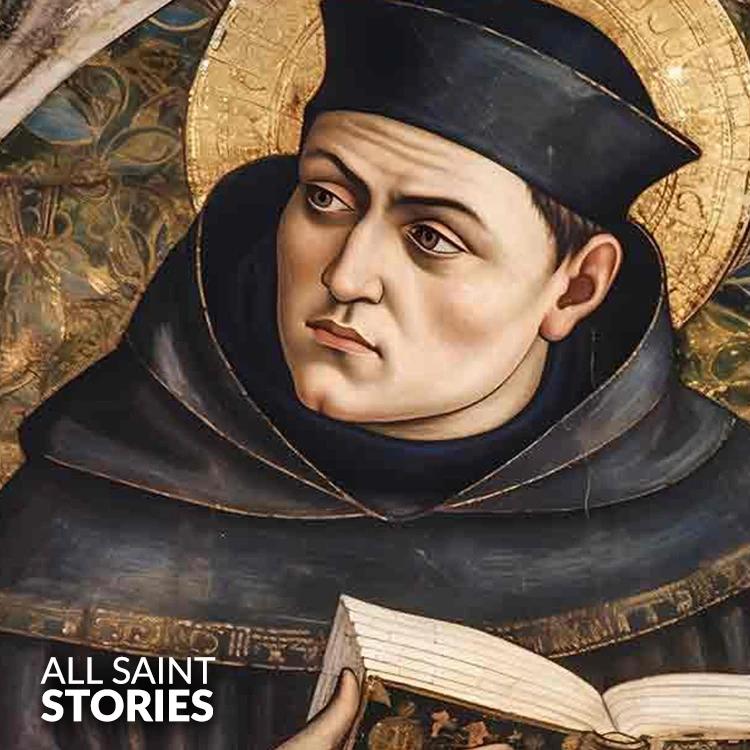
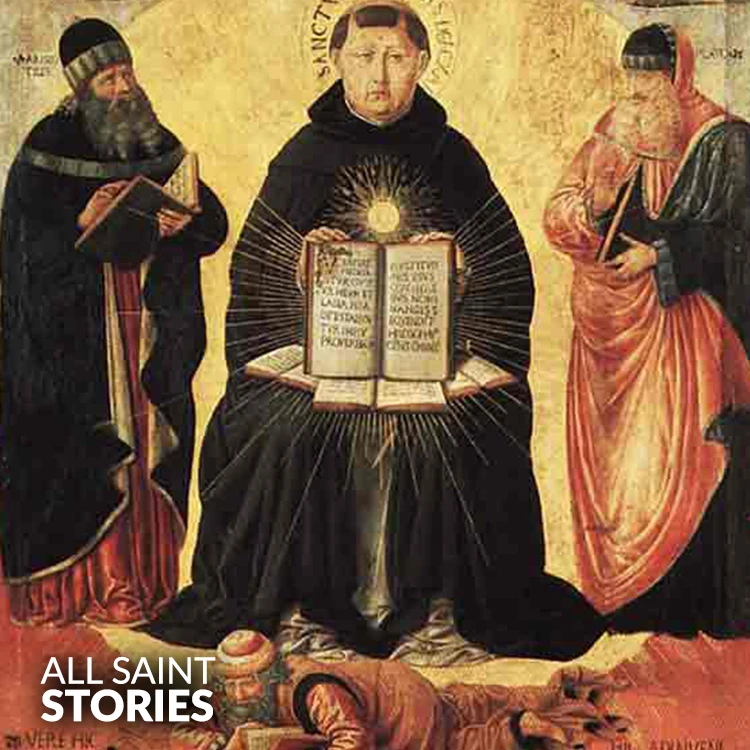

 English
English
 Italian
Italian
 French
French
 Spanish
Spanish
 Malayalam
Malayalam
 Russian
Russian
 Korean
Korean
 Sinhala
Sinhala
 Japanese
Japanese
 Arabic
Arabic
 Portuguese
Portuguese
 Bantu
Bantu
 Greek
Greek
 German
German
 Dutch
Dutch
 Filipino
Filipino